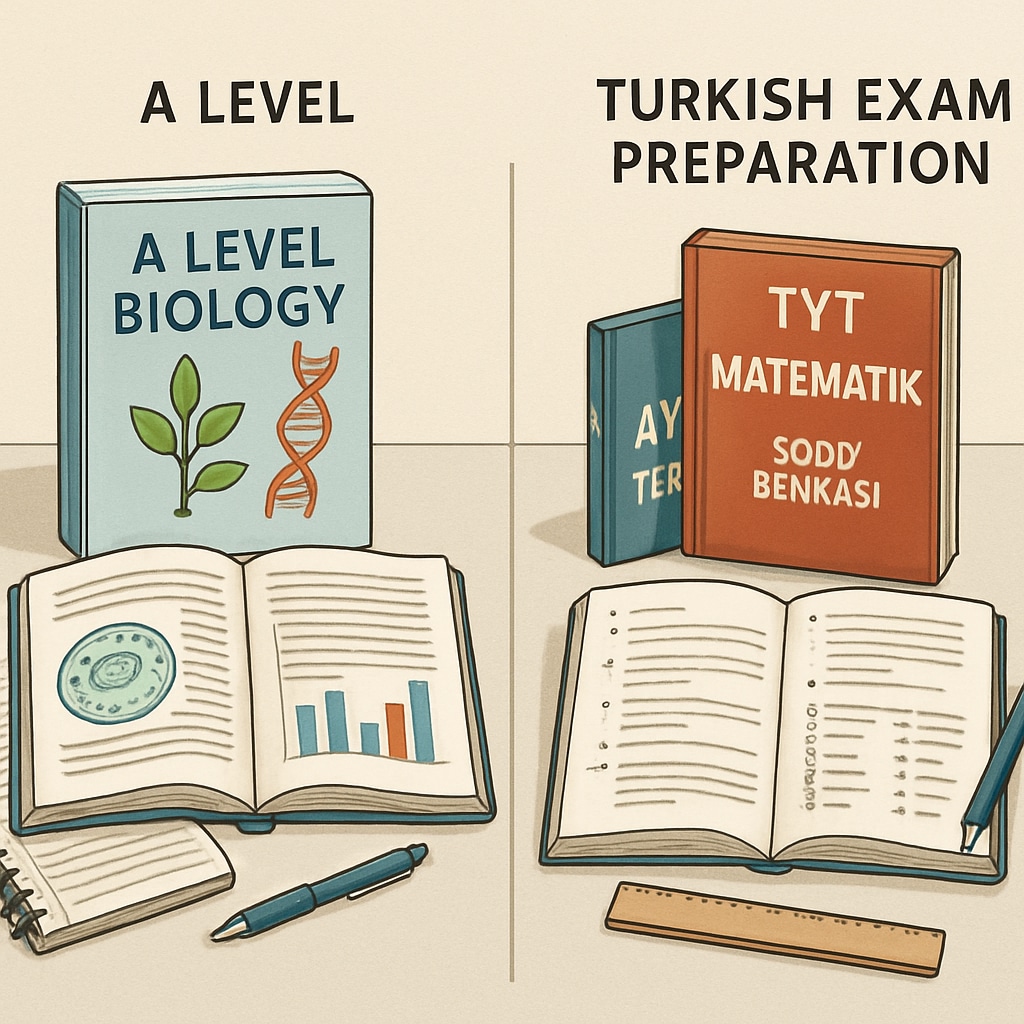Turkey’s education system is heavily driven by centralized exams, creating immense pressure for students and limiting their overall development. This approach prioritizes rote learning over creativity and critical thinking, making it difficult for students to cultivate their unique talents. By comparing Turkey’s system to the UK’s A Level model, this article proposes strategic reforms to build a more individualized and student-centric education ecosystem.
Challenges of Turkey’s Exam-Oriented Education System
The Turkish education system revolves around high-stakes, centralized exams such as the LGS and YKS, which determine students’ eligibility for high schools and universities. While these exams aim to standardize education, they often lead to significant stress and a narrow focus on memorization. Students are forced to prioritize exam preparation over holistic development, leaving little room for extracurricular activities or creative pursuits.

Moreover, this system generates a one-size-fits-all approach, disregarding individual learning styles and interests. Students who excel in areas outside core subjects are often overlooked, perpetuating a cycle where academic success is equated solely with exam performance. According to Wikipedia’s overview of Turkish education, this system has been criticized for failing to adapt to the diverse needs of modern learners.
A Level vs. Turkish Centralized Exams: A Comparative Analysis
The UK’s A Level system offers a stark contrast to Turkey’s exam-centric model. A Levels allow students to specialize in subjects of their choosing, fostering depth of understanding and passion for their selected fields. This flexibility encourages personalized education, enabling students to explore their strengths while preparing for higher education or careers.
Additionally, the A Level system incorporates coursework and modular assessments, reducing the pressure associated with single high-stakes exams. Students can demonstrate their knowledge through various methods, such as essays, projects, and presentations, which cater to diverse learning preferences. As noted by Britannica’s explanation of A Levels, this approach nurtures critical thinking and innovation, qualities that are essential in today’s globalized world.

Reform Recommendations for Turkey’s Education System
To move away from its exam-oriented framework, Turkey can adopt several strategies inspired by the A Level model:
- Introduce subject specialization: Allow students to focus on subjects they excel in or enjoy, rather than enforcing a uniform curriculum.
- Incorporate diverse assessment methods: Replace single exams with a combination of coursework, presentations, and smaller tests to reduce stress and accommodate different learning styles.
- Promote extracurricular activities: Encourage participation in arts, sports, and community projects to foster holistic growth beyond academics.
- Invest in teacher training: Equip educators with tools to support individualized learning, ensuring that students receive tailored guidance.
As a result, these reforms would create an education system that values creativity and individuality, preparing students not just for exams but for life itself. By prioritizing personalized development, Turkey can empower its youth to thrive in an increasingly complex world.
Conclusion: The Way Forward
While Turkey’s centralized exams provide structure, they also impose significant limitations on student growth. By adopting principles from the UK’s A Level system, Turkey has the opportunity to transform its education landscape. A shift towards personalized, diversified learning will not only reduce exam pressure but also cultivate critical thinking and creativity, equipping students for success in the 21st century.
Ultimately, breaking free from the constraints of exam-driven education is the key to unlocking Turkey’s potential. With strategic reforms, the nation can build an education system that embraces individuality and nurtures innovation, paving the way for a brighter future.


